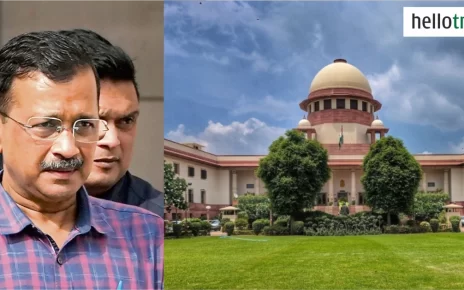The National Medical Commission on Friday unveiled a new competency-based medical education for undergraduate course curriculum to be applicable to the current batch of MBBS students for 2021-2022 admitted to colleges in February and March 2022.
Highlights of the course are replacement of Hippocratic Oath with Maharishi Charak Shapath; introduction of yoga and preferable celebration of the International Yoga Day by all MBBS batches across all colleges and inclusion of family adoption programme wherein MBBS students will adopt a village as part of community medicine course.“Modified Maharishi Charak Shapath is recommended when a candidate is introduced to medical education,” the NMC circular issued by the Aruna Vanikar, President, NMC Undergraduate Board, said just three days after the health ministry informed Parliament that the NMC had not conveyed any proposal to replace the Hippocratic oath.
The NMC circular however formalises the replacement of the Hippocratic Oath to which MBBS entrants pledge. Charak Shapath is attributed to Charaka, the principal force behind Ayurveda.On March 29, Minister of State for Health Bharati Pawar had told the Rajya Sabha, “As informed by the National Medical Commission (NMC), there is no proposal of replacement of Hippocratic Oath with Charak Shapath.”The new MBBS curriculum course will be immediately applicable to MBBS batches.It recommends a family adoption programme to begin from the 1st professional year and remain throughout.
“The programme will include villages not covered under primary health centres adopted by medical colleges. If travel time to the site is over two hours on weekends, slums on city outskirts may be adopted,” the curriculum says.It proposes yoga training initiation during the foundation course and adds, “Yoga practices shall be for a maximum of one hour daily during the period of ten days beginning June 12 every year to culminate on international yoga day June 21, to be celebrated in all medical schools across the country. These may be practised by all batches of MBBS. Yoga module will be made available to all colleges”The new curriculum stresses three domains of learning—cognitive, affective and psychomotor with Vanikar saying it would enrich students with a sound base and balanced approach with the introduction of the foundation course which includes family adoption programme, yoga, meditation, local language adaptation skills.
For lost instruction time due to Covid (duration of the 1st professional was reduced from 14 months to 12 months), NMC has proposed one week of foundation course at the beginning of the academic calendar and the remaining three weeks spread over the first six months beyond curricular hours.NMC has also suggested allocating hours set aside for sports and extracurricular activities for regular teaching and reduction in vacations.It added, “1st exams will be conducted for forensic medicine, toxicology and community medicine; all clinical subjects will be taught as per curriculum parallel and exams will be covered under the National Exit Test (NEXT) for final year MBBS students. Details of NEXT will be notified later.”NMC has further asked colleges to reduce self-directed learning hours—specifically from phase 1 subjects like anatomy (which has 40 hours); physiology (20 hours).
It has proposed a continuous internal assessment and said supplementary exams be conducted between 4 to 6 weeks from the date of declaration of regular results.“There will be no supplementary or repeat batches but two opportunities will be given to students to pass. Students who pass 1st MBBS supplementary exam shall be offered special classes and ward postings. Those who fail will join subsequent junior batches. Students who pass 2nd MBBS supplementary will be offered special classes to cover the syllabus. Those who fail may be allowed to continue with the regular batch but will have to pass before taking NEXT,”NMC said.




